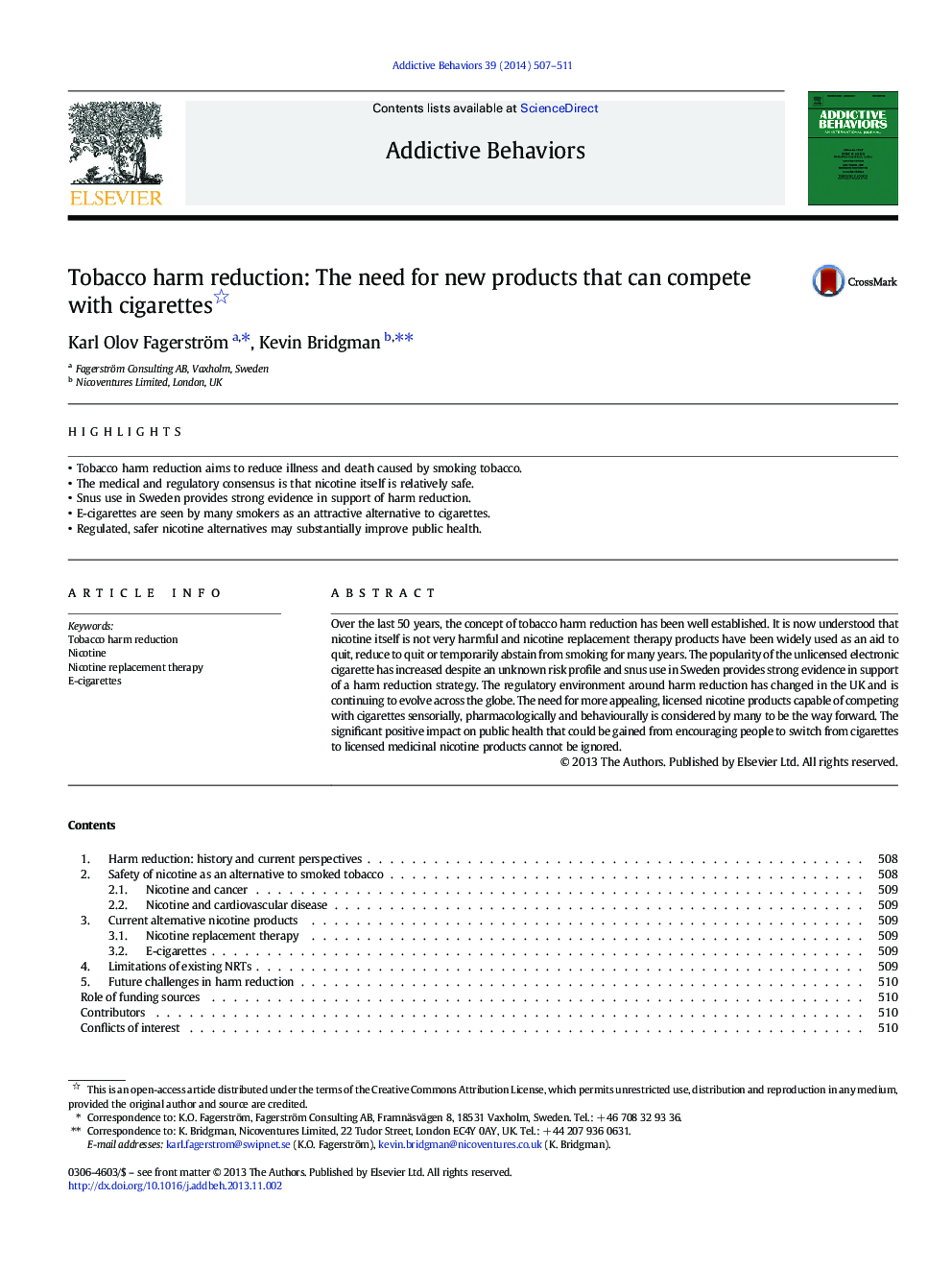| Article ID | Journal | Published Year | Pages | File Type |
|---|---|---|---|---|
| 10443189 | Addictive Behaviors | 2014 | 5 Pages |
Abstract
Over the last 50Â years, the concept of tobacco harm reduction has been well established. It is now understood that nicotine itself is not very harmful and nicotine replacement therapy products have been widely used as an aid to quit, reduce to quit or temporarily abstain from smoking for many years. The popularity of the unlicensed electronic cigarette has increased despite an unknown risk profile and snus use in Sweden provides strong evidence in support of a harm reduction strategy. The regulatory environment around harm reduction has changed in the UK and is continuing to evolve across the globe. The need for more appealing, licensed nicotine products capable of competing with cigarettes sensorially, pharmacologically and behaviourally is considered by many to be the way forward. The significant positive impact on public health that could be gained from encouraging people to switch from cigarettes to licensed medicinal nicotine products cannot be ignored.
Related Topics
Life Sciences
Neuroscience
Behavioral Neuroscience
Authors
Karl Olov Fagerström, Kevin Bridgman,
